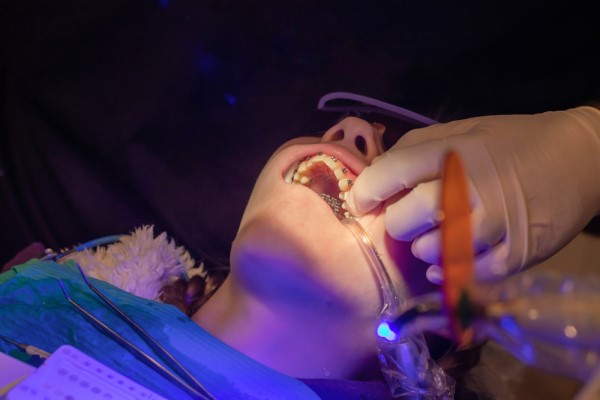4 Tips for Dental Bonding Aftercare

Dental bonding is a common practice in dental care, as dentists will use it in a number of treatments and procedures. Bonding holds devices such as crowns, bridges, and veneers together. It may also be useful in reshaping teeth and restoring their appearance. Bonding material is strong and durable, but it is prone to breaking under certain conditions. If you have a procedure where the dentist uses bonding, there are essential steps you should follow to preserve it.
How dental bonding works
When a patient has a damaged tooth and other cosmetic needs, the dentist will use bonding to restore the tooth. This process requires a few important steps. The dentist will first roughen the surface of the tooth. A liquid is applied to the tooth, which helps the bonding material stick effectively. The dentist puts the bonding on, which is a composite resin material. After doing this, the dentist will use a UV light to harden it quickly.
Avoid foods and beverages that stain
In the first few days after a procedure with dental bonding, patients should not eat and drink foods and beverages that can cause discoloration. These include coffee, tea, wine, and cola. Foods such as tomato sauce and berries can have the same effect. After this period, the bonding will not be as susceptible to staining.
Maintain good oral health care
Getting treatment such as a crown or veneer does not exclude the patient from keeping up with proper oral hygiene. It is just as critical to maintain healthy, strong teeth after dental bonding has taken place. Brushing at least twice a day with fluoride-based toothpaste and flossing daily will help to preserve the bonding. This will prevent tooth decay and gum disease, which could force the filling to crack or fall out.
Stay away from certain foods
After dental bonding has helped to repair a tooth, the patient should avoid hard foods. This includes many types of candy. The patient should be cautious about eating foods such as popcorn and biting into chicken bones, ice, and other items that could break the bonding. Sugary foods can also eat away at the bonding, causing deterioration.
Keep coming to the dentist’s office
Regular dental visits are also a good way to extend the life of dental bonding. A typical checkup consists of a teeth cleaning and an examination from the dentist. The dentist will inspect the bonding and make sure it is holding up well. If the dental bonding is weakening or starting to break away, the dentist can make the necessary repairs. Replacing the bond might be necessary too. The dentist might also offer suggestions on effective care for the bonding and what the patient can improve.
Keep your new smile intact
Dental bonding is vital in procedures that repair teeth. Restoring your smile would not be possible without this process. You want it to last and be effective for as long as possible. If you follow these tips, you can enjoy strong bonding of dental restoration devices to your teeth.
Are you considering dental bonding in the Gainesville area? Get more information at https://princewilliamdental.com.
Check out what others are saying about our dental services on Yelp: Dental Bonding in Gainesville, VA.
Recent Posts
Dental bonding is an effective restorative procedure for many dental issues, including tooth sensitivity. Read on to learn more about dental bonding. Dental sensitivity affects almost everyone at some point in their lives. Very hot or cold foods or liquids may cause a person’s teeth to become irritated. Knowing how to manage or approach sensitivity…
Dental bonding is a non-invasive treatment that has cosmetic and therapeutic uses. It involves applying composite resin – made with mixtures of plastic and glass – to the patient’s tooth. These composites can be shaped and molded as desired, allowing the dentist to address issues like decay or damage to a tooth. Composite resins can…
Dental bonding involves applying a tooth-colored resin material to the visible surfaces of teeth to protect the enamel from additional harm and achieve an ideal smile. The purpose of dental bonding is to address oral health or cosmetic concerns. Dental bonding is particularly useful for addressing issues with the more visible teeth at the front…
Your dentist might recommend dental bonding if you are unhappy with your smile. This article explains how long this restoration will last and what influences its lifespan. Whether you have had a tooth gap for years or have recently chipped a front tooth, even a little mistake will make you hesitate before smiling. However, before…


